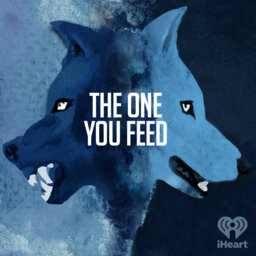Kute Blackson on The Magic of Surrender
Kute Blackson is an inspirational speaker and transformational teacher. Born in Ghana, West Africa, Kute’s multicultural upbringing as the child of a Japanese mother and a Ghanaian father has spanned four different continents. His unique lineage lay the foundation for his approach to breaking down barriers and unlocking an individual’s true gifts and greatness. He now speaks at countless events around the world, is a member of the Transformational Leadership Council, and was the winner of the 2019 Unity New Thought Walden Award.
In this episode, Eric and Kute Blackson discuss his book, The Magic of Surrender: Finding the Courage to Let Go.
But wait, there’s more! The episode is not quite over!! We continue the conversation and you can access this exclusive content right in your podcast player feed. Head over to our Patreon page and pledge to donate just $10 a month. It’s that simple and we’ll give you good stuff as a thank you!
Kute Blackson and I Discuss The Magic of Surrender and …
- His book, The Magic of Surrender: Finding the Courage to Let Go
- The importance of connecting with who we really are underneath the patterns and stories we’ve built as we grow up
- Is what I believe about myself and what I believe about life fact or a story?
- The value of a guide or coach to help you see things about yourself that you may not be seeing
- How all lessons are repeated until learned
- That meeting ourselves with compassion allows us to let go of outdated coping mechanisms
- The difference between surrendering and succumbing to our feelings
- All feelings remain present until fully felt
- When you take the label off the feeling, it’s an energy and sensation that can be experienced in your body
- How grief can actually break our hearts open to a new way of being, a new dimension of love and strength
- What surrender is and isn’t
Kute Blackson links:
By purchasing products and/or services from our sponsors, you are helping to support The One You Feed and we greatly appreciate it. Thank you!
If you enjoyed this conversation with Kute Blackson, check out these other episodes:
In 1 playlist(s)
The One You Feed
Transformative ideas from the best thinkers on the planet including guests like James Clear, Susan C…Social links
Follow podcast
Recent clips

Embrace the Chaos: Finding Clarity Through Meditation with Henry Shukman (Part 1)
1:00:25

Navigating Fear and Hope: the Everyday Courage That Shapes Our Lives with Ryan Holiday
52:41

Failure as Fertilizer: Learning to Bloom Again with Debbie Millman
59:56
 The One You Feed
The One You Feed